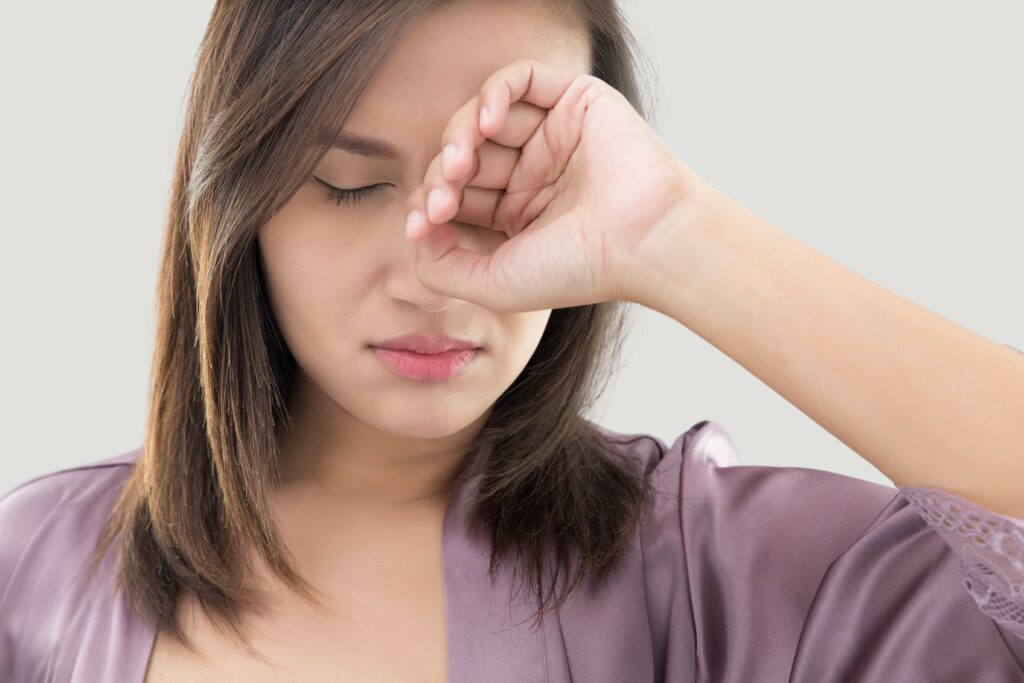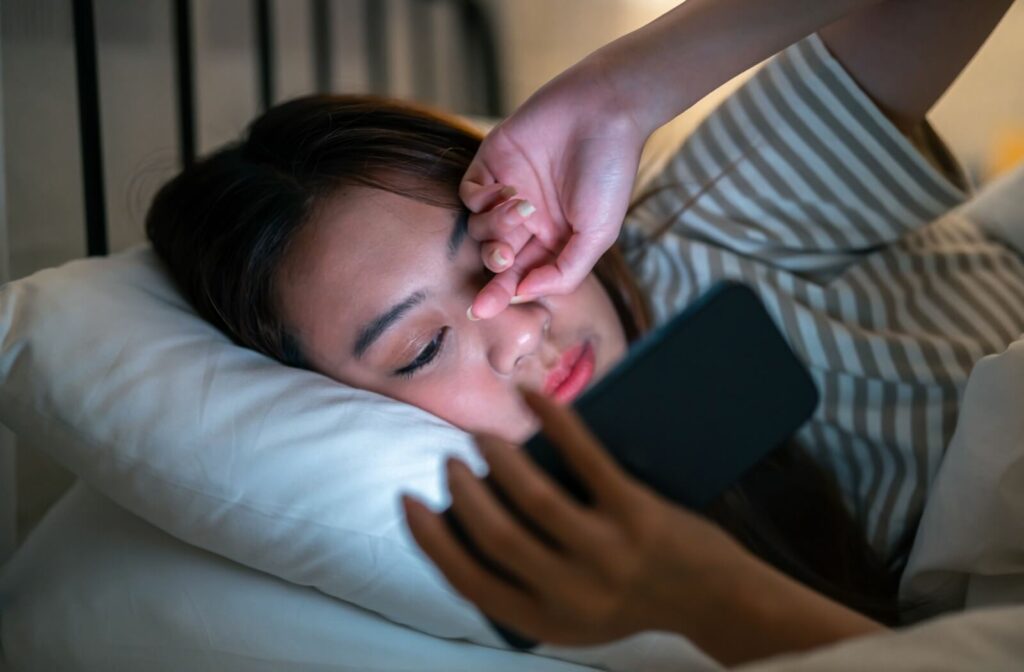Waking up from a cozy slumber can sometimes be challenging, but starting your day with dry eyes makes it even harder. Morning dryness often stems from poor eye lubrication during sleep, which can be influenced by various factors, such as reduced blinking, incomplete lid closure, dry sleeping environments, or even digital screen use before bed.
If you’ve been dealing with dry eyes in the morning, you’re not alone. We’re here to help you understand this condition and provide solutions tailored to your needs.
Understanding Dry Eyes
Dry eye syndrome is a common and often uncomfortable eye condition. It occurs when your eyes either fail to produce enough tears or when tears evaporate too quickly. Without adequate lubrication, your eyes may feel dry, gritty, or irritated, and you may experience redness, blurry vision, or discomfort.
What Causes Dry Eyes?
Tears are essential for keeping our eyes moisturized and protected. They consist of three layers, and any imbalance in these layers can lead to dryness. Dry eyes generally fall into two categories:
- Aqueous tear-deficient dry eye: Caused by reduced tear production, leading to insufficient lubrication.
- Evaporative dry eye: Caused by rapid evaporation of tears due to insufficient oil production in the tear film.
Symptoms of Dry Eyes
Common symptoms include:
- Redness
- Watery eyes
- Blurry vision
- Sensitivity to light
- A stinging or burning sensation
Factors That Contribute to Dry Eyes
Dry eyes can be exacerbated by several environmental and lifestyle factors, including:
- Environment: Exposure to wind, smoke, dry climates, or time in air-conditioned or heated spaces.
- Digital screens: Prolonged screen use can decrease blinking and increase strain on tear film.
- Meibomian gland dysfunction (MGD): When the glands responsible for producing the oily layer of tears become clogged, they can’t function properly.
If left untreated, dry eyes can lead to complications such as damage to the corneal surface. Managing these symptoms is important for maintaining eye health and comfort.
The Connection Between Sleep and Dry Eyes
While sleep itself doesn’t cause dry eyes, several sleep-related factors can exacerbate them:
- Reduced blinking: Blinking distributes moisture across the eye, but this process stops while we sleep, reducing lubrication.
- Incomplete lid closure: Conditions like nocturnal lagophthalmos, where the eyelids do not fully close, can expose the eyes to air, increasing tear evaporation.
- Dry sleep environments: Sleeping in a room with low humidity, air conditioning, or a fan blowing directly on your face can intensify dryness.
- Sleep disruptions: Poor sleep patterns or insufficient rest can negatively affect overall eye health. Digital screens before bed may also worsen symptoms by disrupting blinking and tear production.

Solutions for Managing Dry Eyes
While there’s no permanent cure for dry eye syndrome, it is manageable with lifestyle changes and targeted therapies. Here are some tips to address morning dryness and promote eye comfort.
At-Home Remedies for Dry Eyes
Targeting sleep-associated dryness generally includes making some lifestyle changes to promote better sleep:
- Use a humidifier
Add moisture to the air in your bedroom to help reduce tear evaporation during sleep.
- Limit screen time before bed
Reduce screen use at least an hour before bedtime to encourage natural blinking and rest.
- Stay hydrated
Drink plenty of water throughout the day to maintain overall hydration.
- Warm compress mask
Apply a warm compress over your eyes and gently massage the eyelids before bed. This helps unclog oil glands, promoting better tear retention.
- Preservative-free eye drops
Use drops that mimic natural tear composition to restore moisture throughout the day and before sleep.
- Eye ointment
For severe cases, apply an eye ointment before bed to retain moisture overnight. This works well for individuals with incomplete lid closure.
Advanced Dry Eye Therapies
If symptoms persist despite at-home remedies, consult with our team for advanced therapies:
- Meibomian gland expression: This in-office treatment clears clogged glands to restore the oily layer of the tear film.
- Punctal plugs: These small devices are inserted into the tear ducts to retain moisture on the eye’s surface, relieving dryness and irritation.
Take Control of Your Eye Health
Morning dry eyes can disrupt your day before it even begins, but comprehensive care and personalized solutions can make a world of difference. Schedule a consultation at Precision Eye Care in Bridgeport, WV. We are dedicated to providing expert dry eye treatments and compassionate care. Whether you’re exploring at-home solutions or advanced therapies, our team is committed to improving your comfort and overall eye health.



